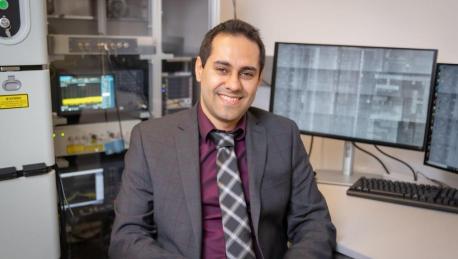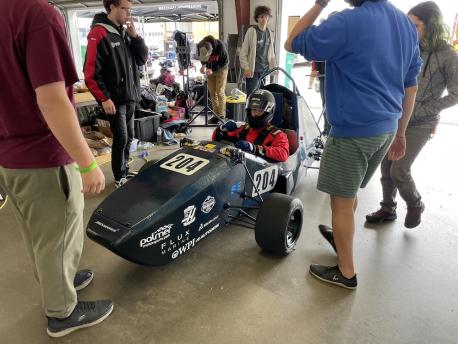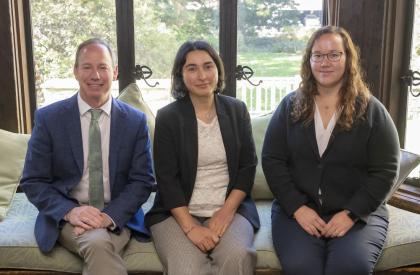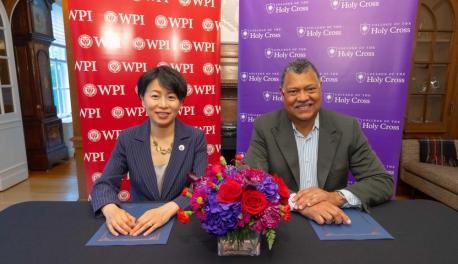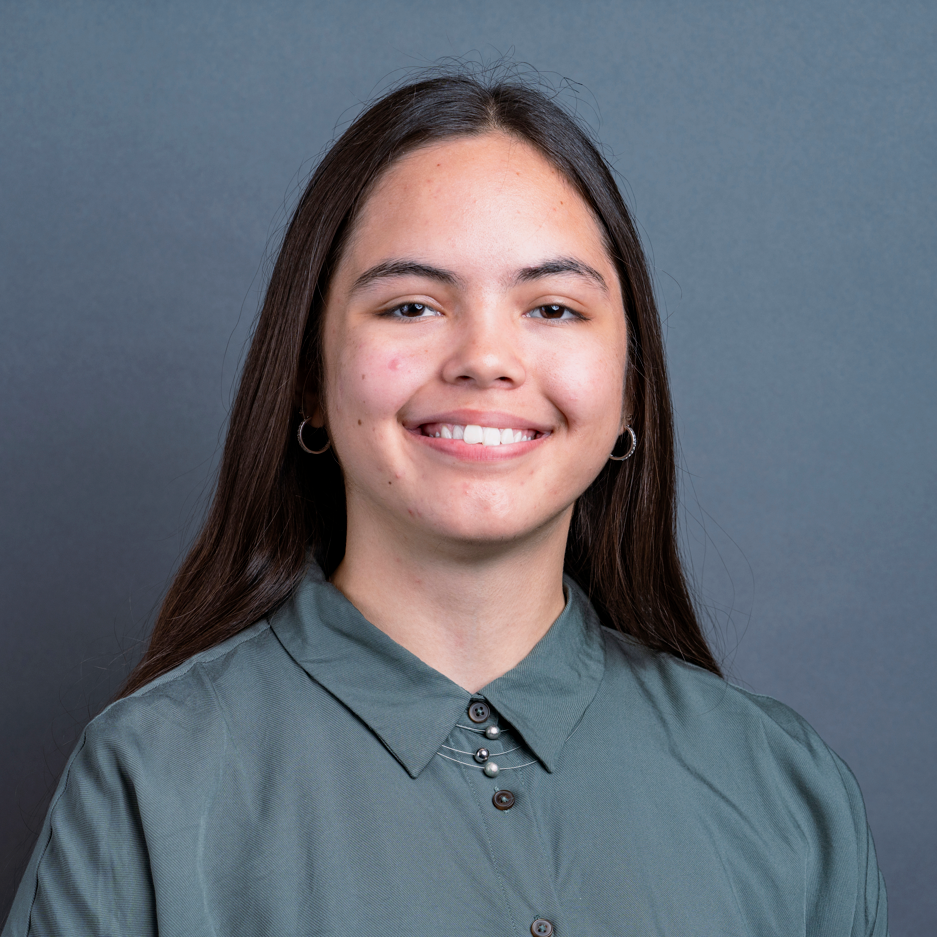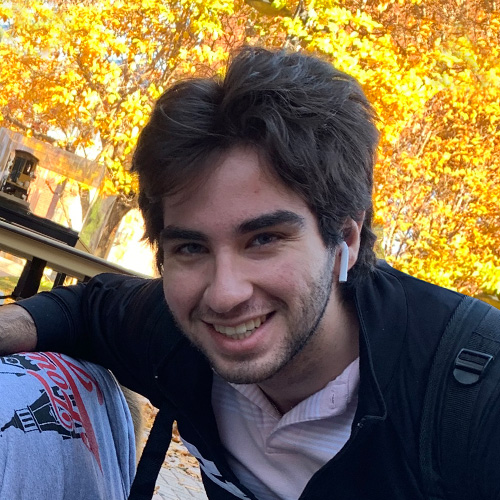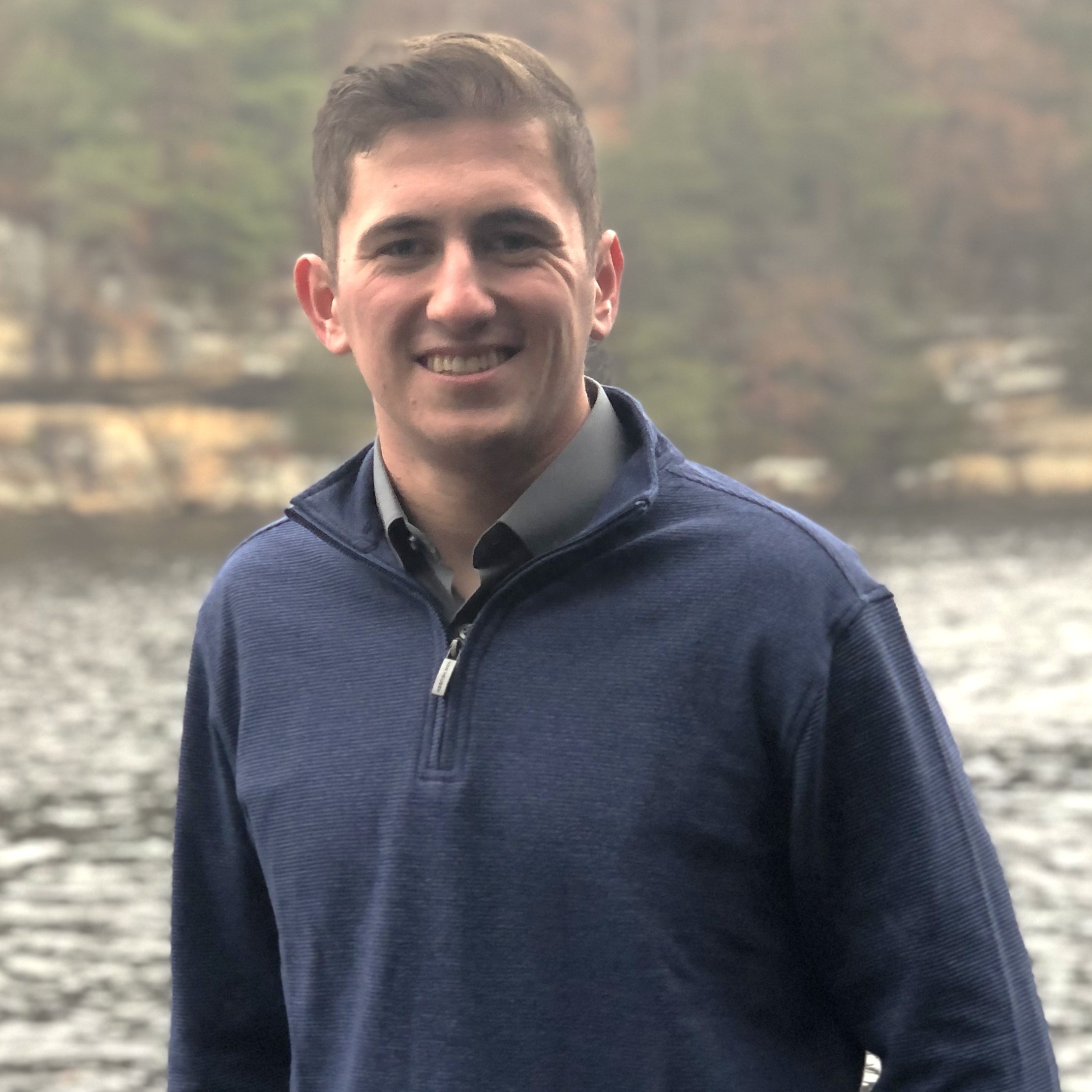Electrical & Computer Engineering

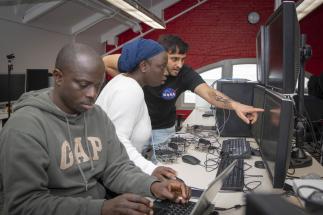
WPI’s Electrical and Computer Engineering (ECE) Department, located in historic Atwater Kent Laboratories, is a community of world-class faculty and students conducting research on diverse subjects including machine learning, cryptography and information security, signal processing, autonomous vehicles, smart health, prosthetic control, analog and digital microelectronics, and wireless information networks. We have a strong tradition of making significant contributions to science and engineering, ranging from the invention of the negative feedback amplifier to laying the foundations of the first wireless local area networks.
Through our innovative Theory and Practice curriculum, hands-on laboratories, and project-based learning, the ECE Department continually strives to develop the next generation of engineers who will develop new technologies and seek creative solutions to society’s most pressing problems. We pride ourselves on our culture of creative scholarship; faculty, students, and staff work closely together and encourage each other through challenges both in the classroom and in life.
Announcements
See More AnnouncementsCalendar
See More EventsWPI Enables More Accurate, Non-Invasive, and Remote Patient Monitoring with Cadence
Embark on an enthralling exploration at the crossroads of academia and industry, where Cadence Design Systems highlights the pioneering research of WPI ECE Professor Ulkuhan Guler and UMass Chan Medical School Pediatric Dr. Lawrence Rhein in the exclusive "Designed with Cadence" series.
Spotlight on Engineering: Hardware Security Research
Patrick Schaumont, professor of electrical and computer engineering, is an expert in hardware security. As part of the Vernam Lab, where several key experts are working on various perspectives of secure system design, he aims to develop designs and prototypes and methods and tools. Partnering with WPI experts in this field can help industry collaborators transfer their own ideas into viable products.
Wireless Sensors for a New Prosthetics Device
Professor Ted Clancy, a local prosthetics company, and an occupational therapist with limb absence have teamed up to develop wireless sensors to improve the performance of prosthetics for individuals with upper limb amputations. “This wireless sensor technology will have a major impact for individuals with limb absence and allow them to control their hand and wrist prostheses,” said Clancy, professor of electrical and computer engineering.
Driving Straight into an Autonomous Future
With self-driving cars promising to become part of our everyday lives, one MQP team took on the challenge of retrofitting a traditional vehicle to become a self-driving automobile. Under the supervision of ECE professor Alex Wyglinski, team members built a modular platform, using LIDAR, which uses lasers and sensors to measure distance, ultrasonic sensors, motors, and a high-performance computing module that can make any ground vehicle drive autonomously.
Meet Our Students
From the University Magazine

Donor Profile: At the Heart of his Support: Pride in WPI’s Growth
Gregory Barnhart ’70 says, “I am proud of what WPI has become, and I want to support its growth and vision going forward.

Donor Profile: Family of WPI Professor Pahlavan
The legacy of wireless communications pioneer Professor Kaveh Pahlavan, PhD ’79, lives on through a new endowed scholarship.

Global Impact: A Relationship Deeper than Surface Beauty
Students gain hands-on experience in environmental conservation at the Hawaii Project Center, developing impactful IQPs that deepen their understanding of native ecosystems and Hawaiian culture.

The Music Man
Dan Sullivan ’77 uses his engineering powers to make life more melodic.
| Area of Study Filter by: | Bachelor | Minor | BS/MS | Certificate | Master | PhD |
|---|---|---|---|---|---|---|
| Electrical & Computer Engineering | bachelor | minor | certificate | master | phd | |
| This degree is also offered Online. | ||||||
| This degree is eligible for a dual bachelor + master option. Learn More | ||||||
| Electrical & Computer Engineering (MEng) | master | |||||
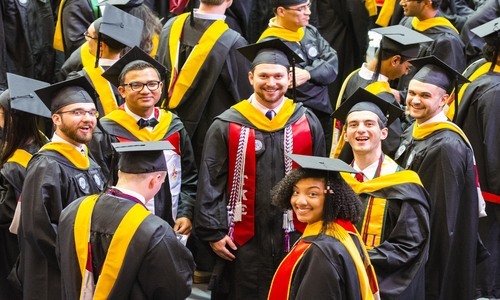
Advance with the BS/MS Dual Degree Program
Fast-track your education and career with the BS/MS program by earning a dual degree―an accelerated academic pathway to both a bachelor’s degree and a master’s degree. Saving both time and money while building advanced knowledge and skills could help you stand out in today’s competitive job market. Discover more about the BS/MS program and your options to earn a BS/MS dual degree at the links below.
